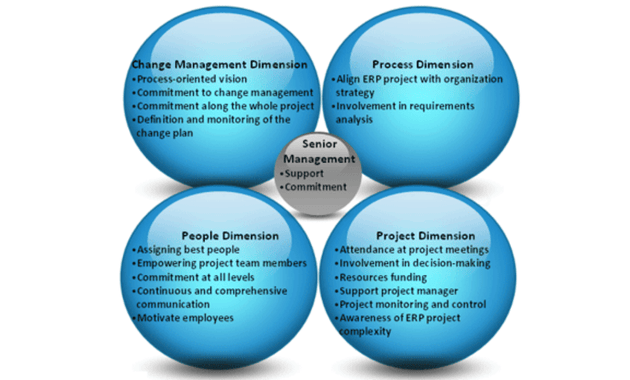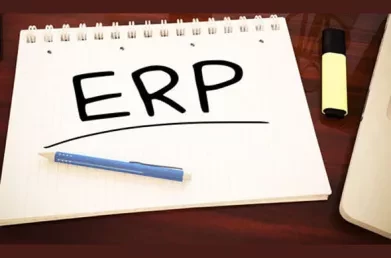The Importance of Senior Management Commitment to ERP Projects
Lack of senior management commitment is routinely listed as one of the major risk factors for ERP projects. But how can a lack of commitment manifest itself and what can a project manager do about it?
Here’s a scenario that many ERP project managers will recognise: the ERP project team has been selected and the project has kicked off. Two weeks later, just as you’re in the middle of initial workshops and training with the team and the implementation consultants, your MD/CEO pulls your QA team member off the project for two weeks to deal with a forthcoming regulatory audit. The following month it’s year-end, so some of your key Finance team members disappear for three weeks because the FD/CFO needs them.
By the end of the second month of the project your original plan is already severely disrupted: you’re now playing catch-up to get back on track.
How is the project going to run smoothly if the resources aren’t made available to free up the team from their “day jobs”?
Making resources available and supporting the project manager are just two of the ways that top management can influence and support an ERP project [1].
Senior Management Concerns relating to ERP Projects (Source: Adapted from [1])

Four things need to happen to ensure that senior management supports the project manager and provides the necessary human resources:
1. Senior management need to understand their role in driving the project
Senior managers are key stakeholders in any ERP implementation project; engaging and communicating with these key stakeholders is vital to the success of the project. Their commitment can be measured and monitored: typically this ‘change readiness assessment’ activity would be part of a change management program whereby the project team has a good handle on the readiness, willingness and ability of top management to implement the project. Effective feedback mechanisms also need to be in place to channel any concerns they may have and to take any relevant actions to address issues that surface – this can be achieved using techniques such as regular stakeholder interviews and surveys.
2. Senior management need to support the project by providing the necessary resources
If you haven’t engaged properly with senior management then this is less likely to happen. Freeing up people typically means backfilling in some shape or form – perhaps temporarily assigning extra responsibilities to those covering for the person seconded to the project, or employing temporary staff to cover. Whoever holds the purse strings needs to know about this before the project starts, and will need to sign off on these additional project-related costs. Ideally it should have been factored into the overall project budget, but often we find that organisations fail to adequately recognise internal project costs. Surprising the MD/CEO with additional unexpected costs is not to be recommended! If you’re involved at the budgeting stage then make sure to factor in all your costs, not just those directly relating to the software, hardware and implementation consultancy.
3. Plan realistically and incorporate planned disruptions & unavailability into the project plan
If you can’t get the resources you need to deliver the project on-time then revisit the plan and make sure it’s realistic in terms of the resources that are actually available. Planned disruptions and unavailability need to be incorporated into the project plan, in the same way that you’d deal with holidays/vacations. So if your QA team member needs five days every month to deal with audits, consider this as a constraint when generating your plan. Find out if your Finance team members need to free up time at each month-end, quarter-end, etc. Check if seasonality or other peaks in demand will influence the availability of your Operations team members.
It’s important that senior management supports the project manager in planning realistically by endorsing the decisions made.
4. Have a mechanism to deal with unexpected difficulties.
You need a mechanism or forum to deal with unexpected difficulties. Usually this is done via a regular steering team meeting. This is the forum the project manager should use to raise issues around resource availability and to highlight any negative effects on the project.
The steering meeting is typically attended by the project sponsor (who should be one of the senior management team). The role of the sponsor is to underpin the work of the project manager and to assist in the resolution of contentious issues.
References:
[1] J. Esteves, J. Pastor, J. Casanovas: “Measuring sustained management support in ERP implementation projects: A GQM approach”, 2002
This Blog was written by John Donagher, Managing Partner at Lumenia. If you would like further information on ERP Strategy please send an e-mail to John Donagher.


